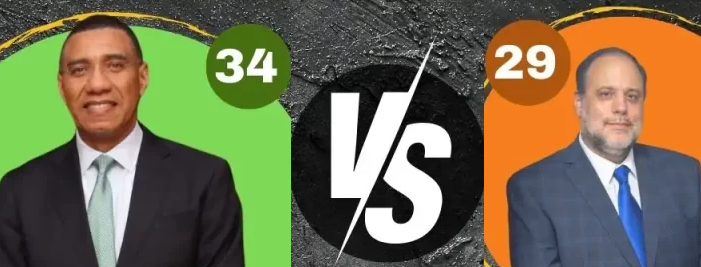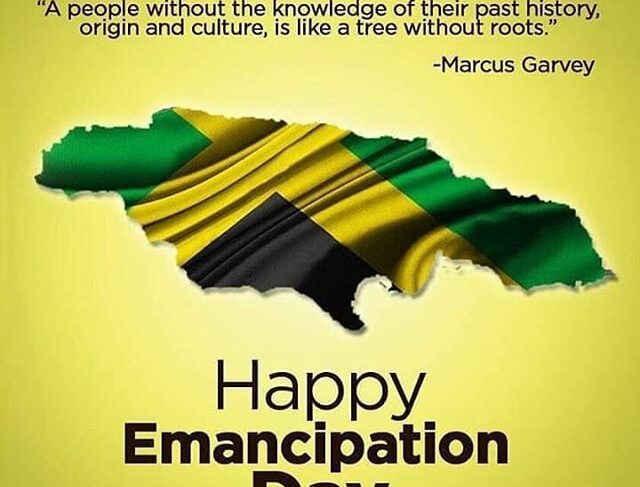Jamaica has a serious crime issue, and it is not relegated to one area of activity. We rank high on corruption, we rank high on the murder charts, we rank high on the rape/sexual abuse charts, we rank high on the drug trafficking charts and the list could go on.
Strategies have been drawn up before; some looked good, others not so much and all, in the end, were implemented in a half-hearted manner which has, in the end, led us to become one of the weirdest places to live. The kidnapping (and trafficking) of girls and boys occurs so often that we no longer freak out in a major way when five go missing in a week.
One way to tackle this crime monster, or at least to begin tackling it, may be to use the Broken Windows Theory. I am aware that the strategy has a bad name, and deservedly so, its implementation in the US and especially New York City (NYC) was draconian, beyond overkill and played a large role in making crime in NYC all the harder to curb while destroying countless lives. I am aware of the pitfalls, appreciate how dangerous they are and am wary of them happening here, but just as a thought experiment, a modified version of this theory may, and I emphasise may, help us in what has been a losing battle against crime.
I am also more than willing to take the criticisms that will come as I am sure people will point out to me areas I have overlooked or mangled.
Now, in its most basic description, the broken windows strategy theorises that criminals are attracted to rundown neighbourhoods and that rundown neighbourhoods become incubators for crime and criminal activity. Right away one can see how this can be abused and turned into a monster (a look at the US also shows how it can be monstrous), but looking at it in the cold light of Jamaica it does have some logic, and with some nifty trimmings and tailoring can be made to work for us.
Much of the crime that the populace with their classist selves care about at the moment are the ones involving the gun and sex. The neighbourhoods that are riddled with this type of crime are, if we look at them, communities with literal broken windows. They are run down, decrepit and, if we continue wearing our classist caps, are breeding grounds for crime and the crime HQ. The logical thing to do in this situation, if following this theory, would be to fix the broken windows.
This would mean putting up streetlights, ensuring that the areas aren’t dark come 6:00 pm. It would mean fixing the roads or even creating new roads for communities so there isn’t just the one lane in and out (a perfect chokepoint used by many a gunman). It would mean assisting residents in fixing their houses with government or private grants. It would mean putting up actual working cameras at the stop lights and intersections and finally, it would mean ensuring that the communities are free from both vacant lots and overgrown areas.
All of these things, if addressed, would go some way towards fixing our crime problem, but as mentioned before, this theory by itself, without any modifications is doomed to fail, so what are they?
We should be crafting something which goes after the broken windows of broader society and move the strategy uptown. We must ensure that the schools are fully staffed, equipped and maintained as a lack of education leaves one more open to both a life of crime and exploitation. It means funding our hospitals and health sector to the Nth degree as a healthy (and this includes mental health) society and a healthy people are oftentimes more productive and more likely to act positively.
Tackling the broken windows of society also means going after the real kingpins and pushers of crime, and for this we must take off our classist caps and understand the signs of a broken society. Tackling this means going after the politician who continually, and in myriad ways, sells out the country. It means going after the businessman who flouts the tax laws or uses corrupt practices to win a contract. It means holding those who have the luck to be in positions of authority to account. It means going after the large importers of guns and exporters of drugs who continue to call the shots and making them face justice.
All of these things in one form or another can be seen as broken windows, either in the literal sense as in Denham Town, or figuratively if we are talking about the state in general and broader society. It is trite, and in many ways, it is naïve but there is some truth in the fact that a community cannot be properly policed if it looks like a war zone. A war zone calls for soldiers and insurgents, and after a while, as we see in Jamaica, the police begin to take on the feel of an army while the criminals begin to act in ways you only read about in places like Iraq or Bosnia.
Yes, there are bigger issues at hand which are leading to our spiralling crime rate. There is the lack of hope in the formal employment sector, there is the always real prospect of one’s wealth being wiped out by corrupt governments along with equally corrupt or inept businessmen, and there are the age-old class and race issues which hang over us as well as dozens more issues.
It is true that these issues exist and that a broken window policy won’t fix any of those underlying issues, but if tailored to the situation then it would go a long way towards the first real step in our fight against crime, it would give people faith in both the state and the system, it would show that the state and powers that be really do care, even if it is just about the broken windows and non-existent lights.
The system is broken, the state has abdicated its role and the country has gone to pots apart from those areas inhabited by people of means. The nation is, if it was a house, close to being condemned. If it were a neighbourhood, people in power would be seriously mulling allowing it to simply slip out of existence like so many communities of the past. We are a country, and therefore our options aren’t that rosy, and that extreme, in our case, would see us looking like some Mad Max world.
We don’t have much choice in this. We must tackle the broken windows in both the communities and in the state itself. We must begin fixing both the literal and figurative broken windows, of which there are many, and in a manner which does not just take aim at the usual suspect individuals and communities. If we fail to do this, and if we introduce such a form of policing and agency management run along the lines of the US, UK, etc then we are opening ourselves up for anarchy. If we fail to fix the literal and figurative broken windows and give the people agency self-worth and pride then we are looking down the barrel of a failed state and all it entails.
Hopefully, someone in a position of authority — be they government, opposition or the private sector (who truly run the nation) —realises what needs to be done and makes the change before it is too late.



